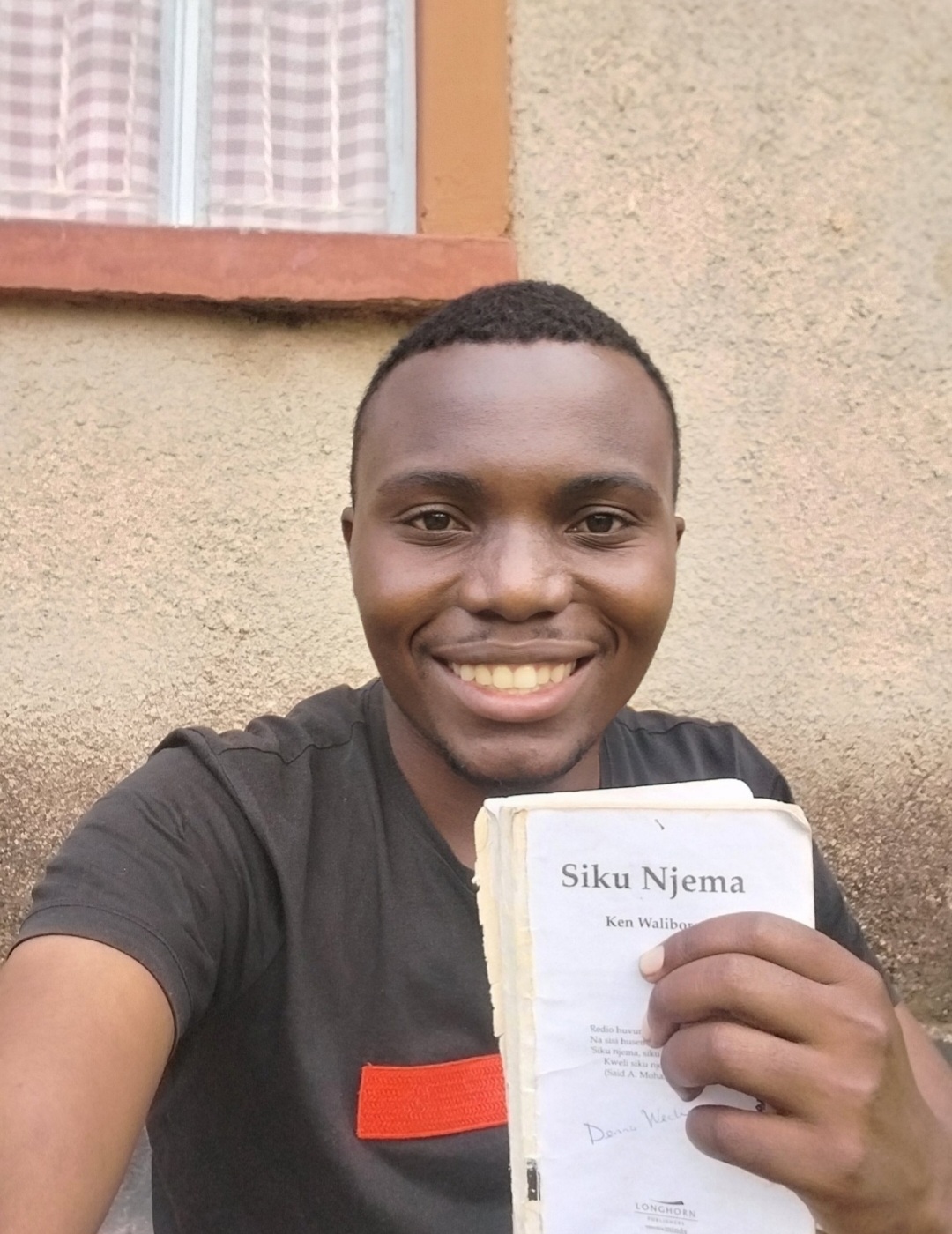Today, I embarked on rereading Siku Njema, a timeless classic by the late Kenyan literary giant Ken Walibora. Originally published in 1996, this masterpiece remains one of the most influential Swahili novels, resonating deeply with readers across generations. My first encounter with this literary gem dates back to my primary school days, specifically in Standard Seven. At the time, I was a young and curious learner with a budding interest in literature. Siku Njema opened a new world for me, one where language and storytelling were intricately woven together to reflect the beauty of Swahili culture, identity, and humanity.
I vividly remember how this book transformed my Swahili learning journey. Its rich grammar, extensive vocabulary, and engaging narrative captivated me, pushing me to emulate its style in my Insha compositions. Each page challenged me to expand my linguistic horizons, and I eagerly rose to the occasion. My Swahili teacher, Mr. Francis Wanyama, from Shing’oto Primary School in Kakamega County, was quick to notice the remarkable improvement in my language skills. However, while impressed, he expressed mixed feelings. He felt that the “complex vocabularies” I had adopted were beyond my level and out of sync with the rest of the class. One day, during a class break, he called me aside and gently advised me to slow down and keep pace with my peers. That conversation, coupled with his decision to award me only 16 out of 40 marks on a composition I had worked tirelessly on, left me feeling deeply dejected.
For a while, I grew disillusioned with Swahili and avoided writing Insha altogether. But Mr. Wanyama, in his wisdom, recognized the unintended harm his critique had caused. Over time, he made deliberate efforts to guide me, offering constructive feedback and helping me channel my potential more effectively. Looking back, I now appreciate his tough love and mentorship, which instilled in me resilience and a deeper understanding of Swahili as an art form.
Years later, Siku Njema reappeared in my life at a pivotal moment. I had just experienced the thrill of seeing my first English article published on The Standard newspaper’s digital platform. It was a moment of immense pride and validation, a sign that my dreams of becoming a writer were not far-fetched. That milestone reignited my ambition to venture into Swahili writing, and I turned to Siku Njema as my guide. I hoped that by studying Ken Walibora’s masterful use of language, I could refine my skills and eventually contribute articles to Taifa Leo, Kenya’s leading Swahili newspaper. Yet, despite my enthusiasm, self-doubt crept in. I hesitated, unsure if I could match the standards required for professional Swahili writing. Sadly, I never pursued this dream, leaving it as an unfulfilled aspiration.
Now, as I revisit Siku Njema with fresh eyes and a more mature perspective, I am reminded of its profound influence on my journey as both a writer and a lover of language. The story itself, with its intricate plot and unforgettable characters, remains as captivating as ever. More importantly, it serves as a symbol of excellence in Swahili literature, showcasing the depth and versatility of the language.
Ken Walibora’s legacy extends far beyond the pages of this novel. His ability to weave complex themes of identity, resilience, and cultural pride into a compelling narrative has cemented his place as one of Kenya’s most celebrated writers. Through Siku Njema, he not only entertained but also educated and inspired countless readers, myself included. This book shaped my approach to writing and deepened my appreciation for the richness of Swahili as both a language and a medium of artistic expression.
As I read through its pages once more, I find myself reflecting on how far I have come and how much I owe to this literary masterpiece. It is a reminder that every story holds the power to transform, to ignite passions, and to connect us to something greater than ourselves. Ken Walibora may no longer be with us, but his work continues to inspire and challenge readers to dream bigger and strive for excellence. For that, I remain eternally grateful.
This rereading of Siku Njema is not just a nostalgic journey but also a reaffirmation of my commitment to embrace the power of words. Ken Walibora’s vision and artistry remain a guiding light, reminding me that the stories we encounter shape who we are and who we aspire to become.
Like Walibora in Siku Njema, who praised his mentor Said A. Mohamed and drew inspiration from the book Sikate Tamaa, I, too, dream of being recognized among Kenya’s prolific writers. I hold onto the belief that one day, my voice will echo through my words.
Radio huvuma: \”Ni siku njema\”
Na sisi husema, maneno kwandama:
\”Siku njema, siku njema\”
Kweli, siku njema?


Facebook Comments